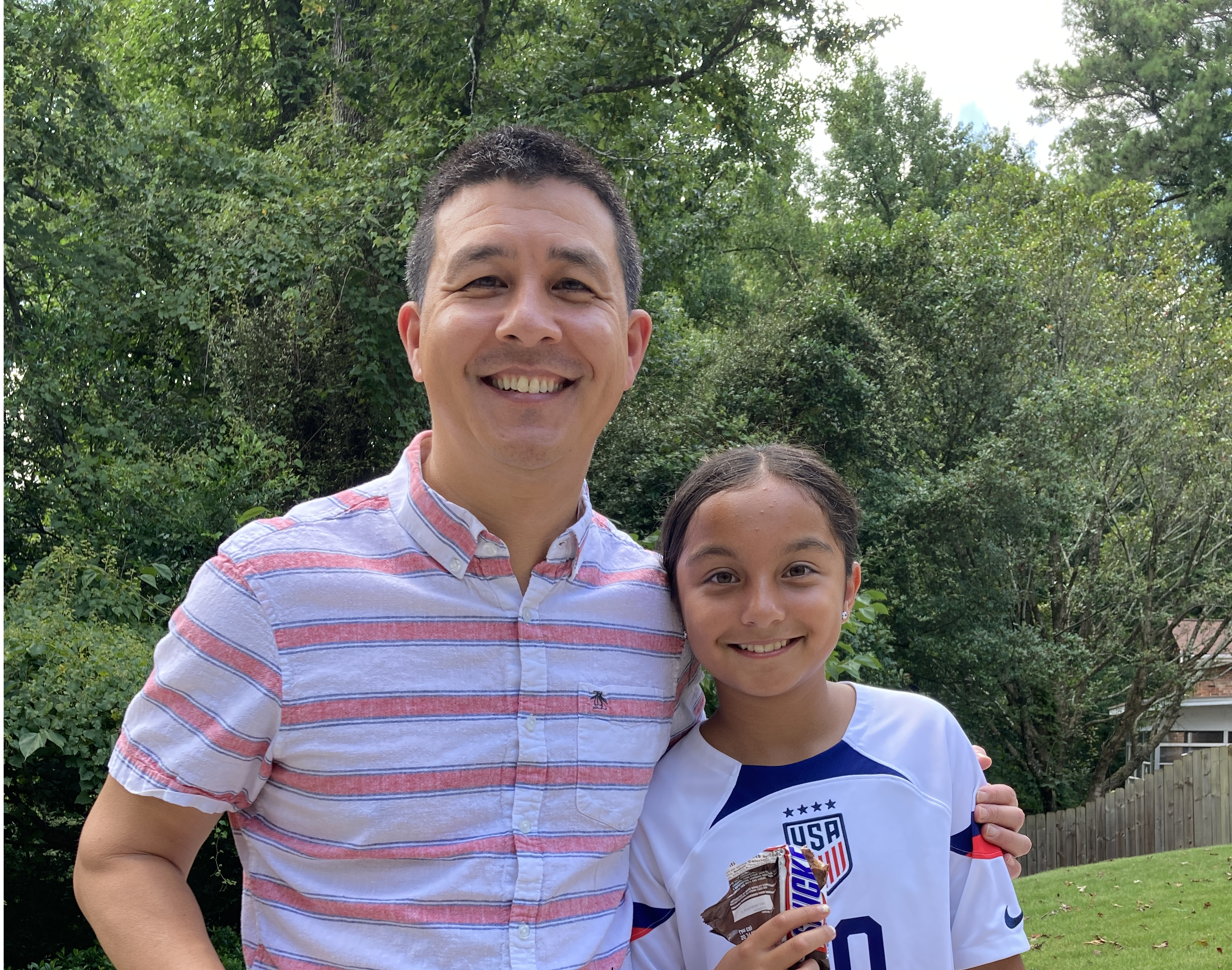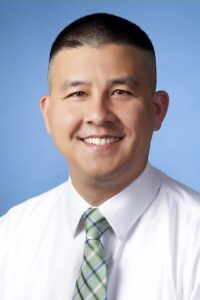Physicians with Heart: Dr. Chad Mao


After 15 years of military service as a United States Navy medical officer, Chad Mao, MD, says the singular focus on the care of children by Children’s Healthcare of Atlanta Cardiology makes his work fun. Dr. Mao is the medical director of the Advanced Cardiac Therapies Program and a pediatric electrophysiologist.
“I get to spend time hanging out with kids, and I’m part of a large team made up of cardiologists, cardiothoracic surgeons, nurse practitioners, social workers, psychologists, genetic counselors and many others,” Dr. Mao said. “Working with almost every discipline within the organization allows us to do things that are seemingly impossible. That is thrilling, rewarding and a lot of fun.”
Under the umbrella of the Advanced Cardiac Therapies Program sits the Advanced Heart Failure, Ventricular Assist Device (VAD) and Heart Transplant programs.
Advanced Heart Failure Program
Heart failure occurs when a child’s heart does not pump or relax adequately to meet the demands of the body. It can occur at any age and results from many different forms of heart disease, including congenital heart disease, cardiomyopathy, myocarditis and cardiotoxicity.
The Advanced Heart Failure Program provides multidisciplinary, specialty care for children and young adults with advanced heart failure and all forms of cardiomyopathy. Treatment typically consists of a combination of heart failure medications. For kids with severe symptoms or disease, additional advanced therapies such as pacemakers, implantable cardiac defibrillators, ventricular assist devices (VAD) or even heart transplantation may be required.
Ventricular Assist Device (VAD) Program
A VAD is a mechanical pump that supports heart function and blood flow in people who have weakened hearts. The device takes blood from a lower chamber of the heart and helps pump it to the body and vital organs, just as a healthy heart would.
“Ventricular assist devices provide mechanical circulatory support to kids of all ages with all kinds of anatomies,” Dr. Mao said. “The devices are used to augment or take over the pumping of blood to the body when a patient’s heart disease has become so advanced that it can no longer be managed by medications.”
According to Dr. Mao, the VAD program is one of the busiest in the country, with about two-thirds of its patients supported by a VAD prior to receiving a heart transplant. More than 90 percent of Children’s VAD patients have successfully received heart transplants.
Learn more about the different types of VADs Children’s provides here.
Heart Transplant Program
When a transplant becomes a patient’s best option, they join the Heart Transplant Program. Children’s is home to one of the top 10 largest and oldest pediatric heart transplant programs in the country. Established in 1988, Children’s Heart Center has performed more than 400 heart transplants. Dr. Mao said his team performs approximately 16 heart transplants every year, and the program has performed the most heart transplants in African American children of any other program in the country. The program has one-year and three-year survival rates above the national average.
“The Advanced Cardiac Therapies Clinic is the only one of its kind in Georgia, and the only one that provides heart transplants for kids,” Dr. Mao said. “We have a long history taking care of patients, we’re deeply involved in clinical research and our outcomes are above national averages. Our multidisciplinary approach provides the best care for families with children who have complex cardiac disease.”
Clinical research ensures the Advanced Cardiac Therapies program is on the leading edge of innovation and improved outcomes. Dr. Mao said the program participates in large, multi-institutional studies of medications to treat pediatric heart failure, trials with VADs and database studies on pediatric advanced therapies outcomes. Dr. Mao and his team are currently evaluating new ways to monitor for transplant rejection by looking at gene expression and DNA from the transplanted heart itself. This innovation would allow physicians to monitor the health of a transplanted heart by looking at the DNA in a blood sample rather than undergoing invasive biopsy procedures several times each year. These blood tests will allow the team to detect a possible organ rejection much earlier than in the past and adjust medications, with the hope of extending the life of the transplant.
“We have broad expertise in a range of heart failure medications and device therapies such as implantable defibrillators and pacemakers,” Dr. Mao said. “We also offer follow-up care for these complicated cases. Our focus is to help patients who are progressing in their heart disease to get to a healthier place and survive until a heart transplant becomes available for them.”
Dr. Mao is a husband and the father of a 10-year-old daughter. He loves music, building furniture and staying physically active, setting a positive example for his patients. Dr. Mao and his family are soccer fans and enjoy watching the US Women’s National Team, European football, and US National Women’s Soccer League.

Chad Mao, MD
Education
- Medical school: Wayne State University
- Residency: National Naval Medical Center
- Cardiology Fellowship: Children’s Healthcare of Atlanta – Emory University
- Electrophysiology Fellowship: Rady Children’s Hospital
- Transplant and Advanced Heart Failure Fellowship: Children’s Healthcare of Atlanta – Emory University
Areas of Focus
- Heart transplantation
- Heart failure and Cardiomyopathies
- Mechanical Circulatory Support
- Heart Failure Device Management
